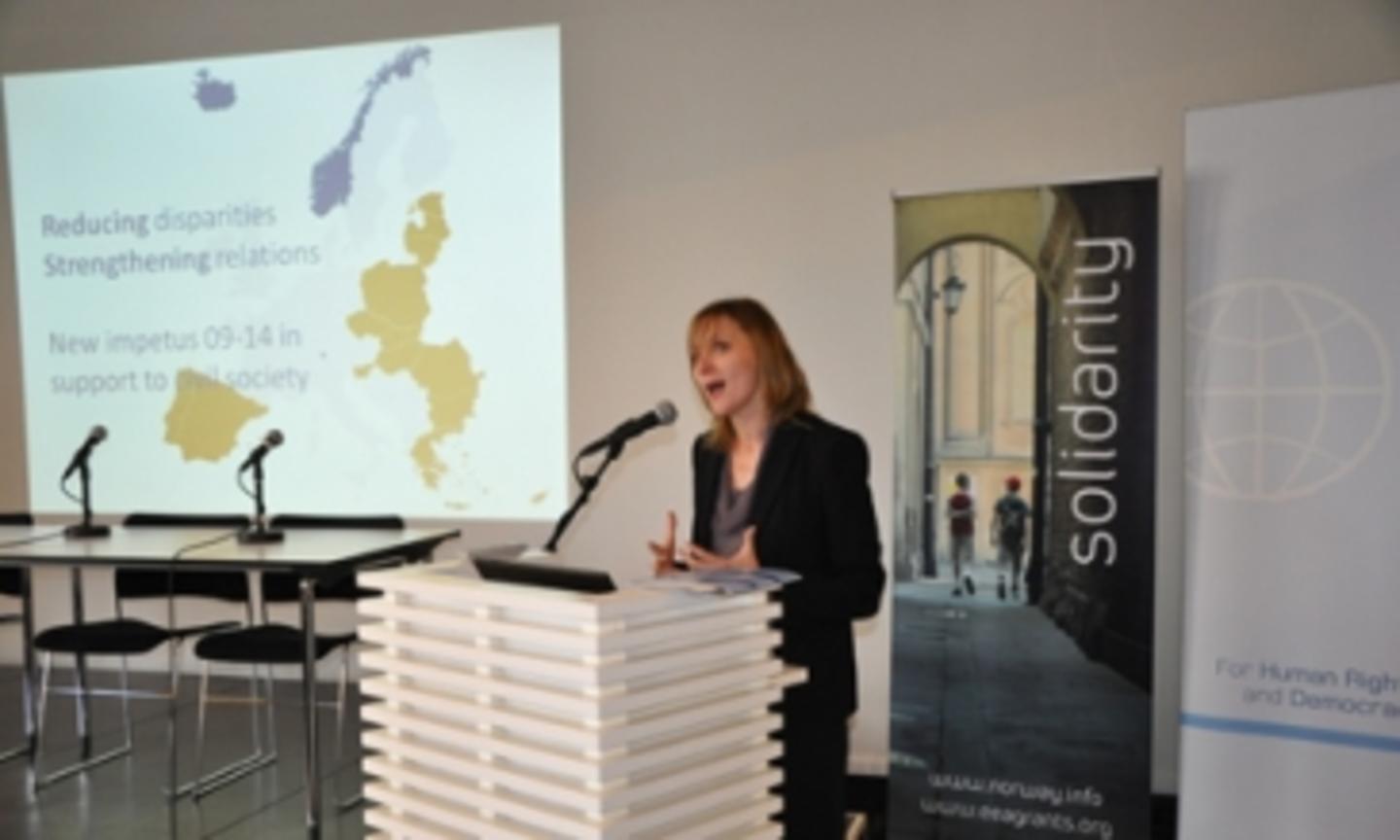The event was co-organised by the Norwegian Ministry of Foreign Affairs (NMFA) and the Norwegian Helsinki Committee (NHC). In a series of presentations, speakers gave an overview of the grant schemes for 2009-2014, as well as an insight into opportunities for participation for Norwegian civil society organisations.
All of the funding from the previous 2004-2009 round was committed to projects by mid-2009, with an implementation deadline of April 2011. This is why this year marks the actual watershed between the two periods.
Prime funding scheme
Targeted support to civil society has been one of the major successes of the EEA and Norway Grants. The three donor states - Iceland, Liechtenstein and Norway - aim to ensure that this success is continued in the future. Of the €1.8 billion available to the 15 beneficiary countries under Grants 2009-2014, a minimum of 10% of the EEA Grants is set aside for the dedicated Funds for non-governmental organisations (NGO Funds).
Steinar Hagen of the NMFA explained why support to this area is important: “Building strong civil societies and sustainable democracies in the new EU member states is a key priority for the donor states. With this substantial support for civil society in the beneficiary countries, we hope to achieve this goal.”
Programme approach
Input from a series of reviews and evaluations has helped to shape the new framework for the EEA and Norway Grants 2009-2014. Support is now more clearly focused on defined sectors and programme areas. All funding will be channelled through multi-annual programmes rather than the project model used previously. Tailoring the programmes more specifically to local needs, and improving the alignment with other policies and funds, should help lever investment to maximum effect.
Accessible funding
For the NGO Funds, management systems have also been simplified to make the process more straightforward for both programme operators as well as organisations involved in projects. Patrizia Brandellero of the Financial Mechanism Office – the secretariat of the EEA and Norway Grants – gave an overview of the new Guideline for NGO Programmes: “We are working more towards result-based activities. The main goal is to strengthen and increase the sustainability of the civil society sector in the beneficiary states.”
Only officially registered entities, defined as non-governmental organisations in the beneficiary states, are eligible to apply for funding. Norwegian organisations can become involved as a partner. Seed money will be available to cover costs of setting up partnerships and a partnership contract.
As in the previous funding period, the Norwegian Helsinki Committee (NHC) will continue to play an important coordinating role between civil society organisations in Norway and the beneficiary states. Representatives from the NHC gave an overview of the relaunched online portal (www.ngonorway.org) which provides relevant information about the NGO Funds and advice for civil society organisations in Norway and the beneficiary countries on how to become involved.
